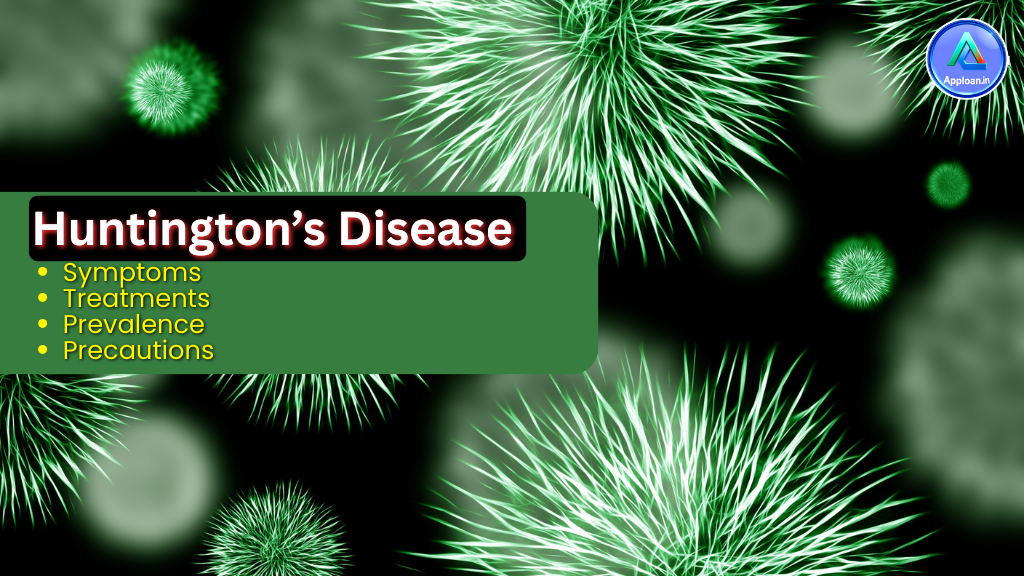Huntington’s Disease Explained: Symptoms, Treatments, Prevalence & 2025 Gene Therapy News
This Disease is a rare, inherited brain disorder that affects movement, thinking, and behavior. This comprehensive guide explains Huntington’s disease symptoms, current treatments, prevalence in the United States, and the groundbreaking 2025 gene therapy news that could change the future of care. Learn how HD is diagnosed, what medications and therapies are available, and why genetic counseling is essential.
Discover how many Americans live with this HD disease, what clinical trials are underway, and how families can access specialized support. Stay updated with the latest research and resources for managing Huntingtons disease in the U.S. Discover everything about Huntington’s disease, from symptoms and treatments to U.S. prevalence and the major 2025 gene therapy breakthrough.
What Is Huntington’s Disease?
Huntington’s disease (HD) is a rare but serious genetic brain disorder caused by a mutation in the HTT gene. This mutation leads to the production of an abnormal huntingtin protein, which damages nerve cells in key brain regions such as the striatum and cortex. Over time, people with HD develop difficulties with movement, thinking, and mood regulation.
The condition usually appears between the ages of 30 and 50, though it can occur earlier or later depending on the number of genetic repeats present. Because it is an inherited condition, every child of an affected parent has a 50% chance of inheriting the disease.

Symptoms of Huntington’s Disease
HD is known for a wide range of symptoms that typically worsen over time. These can be grouped into three main areas:
Movement-Related Symptoms
- Involuntary jerky movements (chorea).
- Trouble with balance, walking, and coordination.
- Difficulty speaking and swallowing in advanced stages.
Cognitive Symptoms
- Trouble with planning, concentration, and decision-making.
- Slower thinking and memory problems.
- Progressive dementia in later stages.
Psychiatric and Behavioral Symptoms
- Depression, anxiety, and irritability.
- Compulsive or impulsive behaviors.
- Social withdrawal or apathy.
Other complications, such as weight loss and sleep disturbances, often appear as the disease progresses.
How Is Huntington’s Disease Treated?
Currently, there is no cure for HD. However, several treatments help manage symptoms and improve quality of life.
Medications
- Deutetrabenazine (AUSTEDO) and tetrabenazine are FDA-approved drugs used to reduce chorea (uncontrolled movements).
- Antipsychotics such as risperidone or olanzapine can help with mood swings, aggression, and involuntary movements.
- Antidepressants and mood stabilizers are often prescribed for psychiatric symptoms.
Supportive Care
- Physical therapy helps with mobility and balance.
- Speech therapy supports communication and swallowing.
- Occupational therapy improves daily living skills and home safety.
- Mental health counseling assists both patients and families in coping with emotional challenges.
Research & New Approaches
Scientists have long been working on treatments aimed at lowering the production of mutant huntingtin protein. Experimental therapies such as antisense oligonucleotides and viral vector gene therapies are now showing real promise.
Recent News: 2025 Gene Therapy Breakthrough
In September 2025, biotechnology company uniQure reported groundbreaking results from a pivotal trial of its gene therapy AMT-130. Unlike traditional drugs, this is a one-time treatment delivered directly into the brain.
Trial data showed that patients receiving the higher dose of AMT-130 experienced a 75% slowing of disease progression over three years compared to the expected course. This marks the first time a therapy has convincingly delayed HD disease, raising hope for long-term disease modification.
While this news has energized the HD community, AMT-130 is still under regulatory review, and widespread availability will take time. Patients are encouraged to consult HD specialists about clinical trial opportunities and future access.
How Many People Have Huntington’s Disease?
HD disease is considered rare. In the United States, prevalence is estimated at 4–5 cases per 100,000 people, meaning roughly 13,000 to 17,000 Americans are currently living with HD. Globally, prevalence varies by region, with higher rates in Europe and North America and lower rates in Asia.
Outlook and Prognosis
HD typically progresses over 10 to 25 years after symptoms first appear. The most common complications leading to death include pneumonia, heart disease, or injuries related to falls. Age of onset and the length of the genetic repeat play a role in how quickly the disease advances.
SEO Keywords for U.S. Ranking
Huntington’s disease, HD disease symptoms, Huntington’s disease treatment, Huntington’s disease prevalence USA, Huntington gene therapy 2025, AMT-130 uniQure, chorea treatment, Huntington’s disease cure research, Huntington’s disease support in the U.S., Huntington’s disease clinical trials.
Frequently Asked Questions
Q: Is Huntington’s disease genetic?
A: Yes. It is an autosomal dominant disorder, meaning only one copy of the mutated gene is enough to cause the disease.
Q: Can Huntington’s disease be cured?
A: Currently, there is no cure. However, the 2025 gene therapy trial (AMT-130) has shown unprecedented success in slowing disease progression, marking a major step forward.
Q: What treatments are available now?
A: FDA-approved drugs like deutetrabenazine and tetrabenazine help manage involuntary movements. Antidepressants and antipsychotics treat mood and behavioral symptoms.
Q: How many people in the U.S. live with Huntington’s disease?
A: Estimates suggest around 13,000 to 17,000 Americans currently live with HD.
Q: Should I get tested if my parent has HD?
A: Genetic counseling is highly recommended before testing, as the results have major implications for emotional health and family planning.
Q: Where can I find care or trials in the U.S.?
The Huntington’s Disease Society of America (HDSA) and clinicaltrials.gov provide up-to-date information on clinics and ongoing studies.
